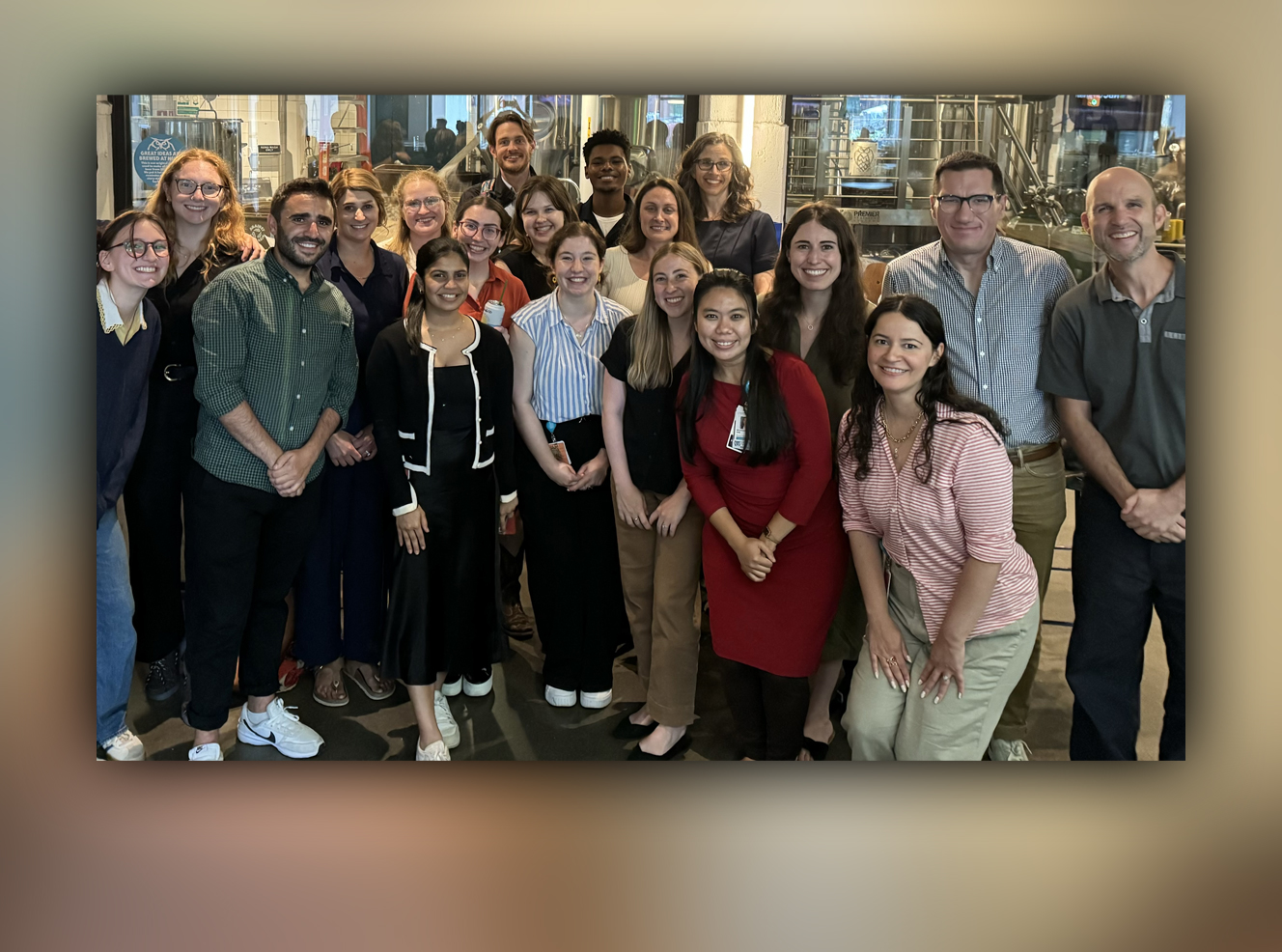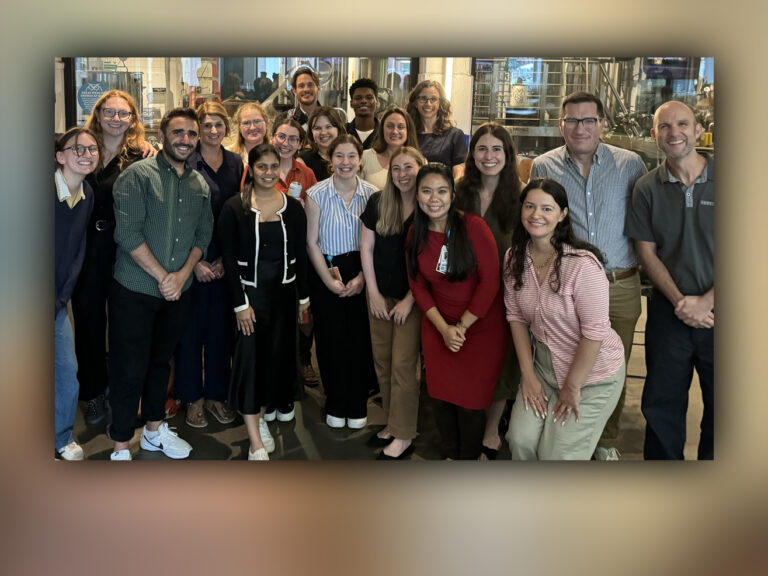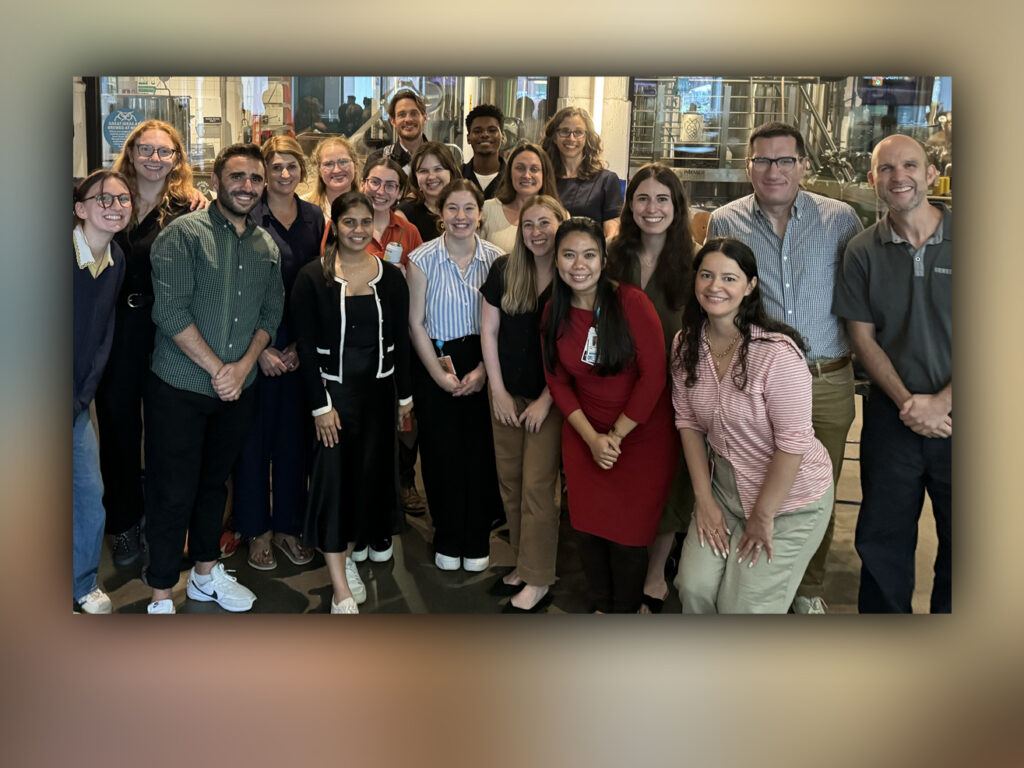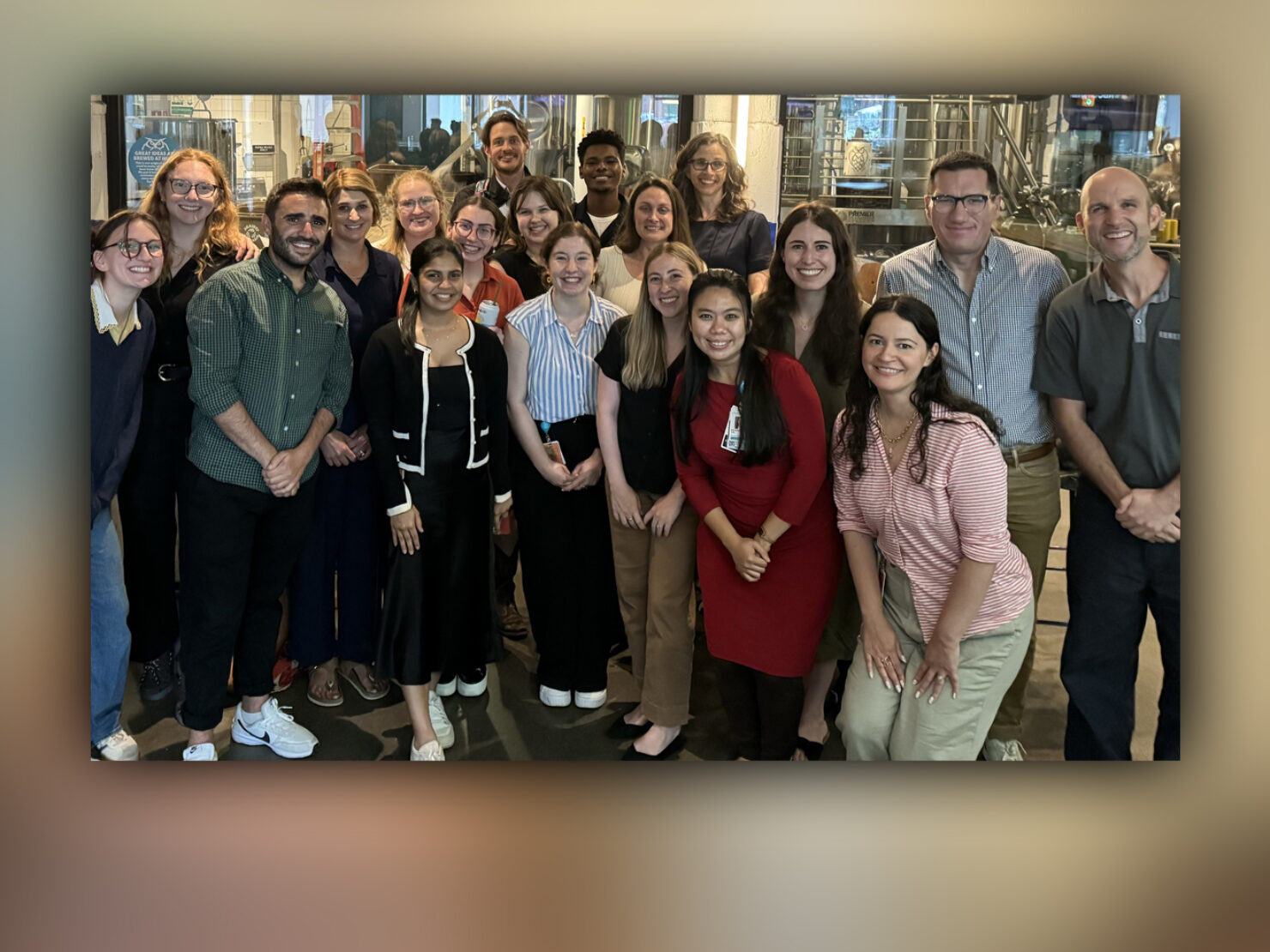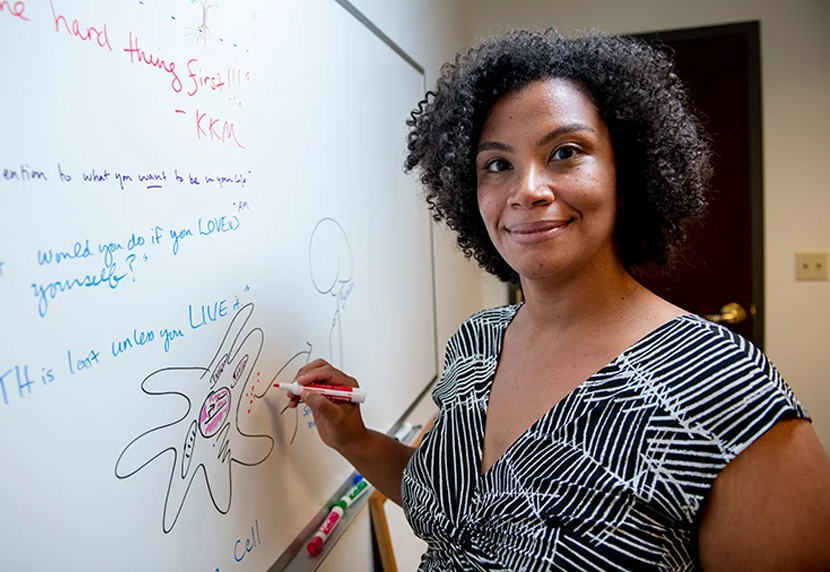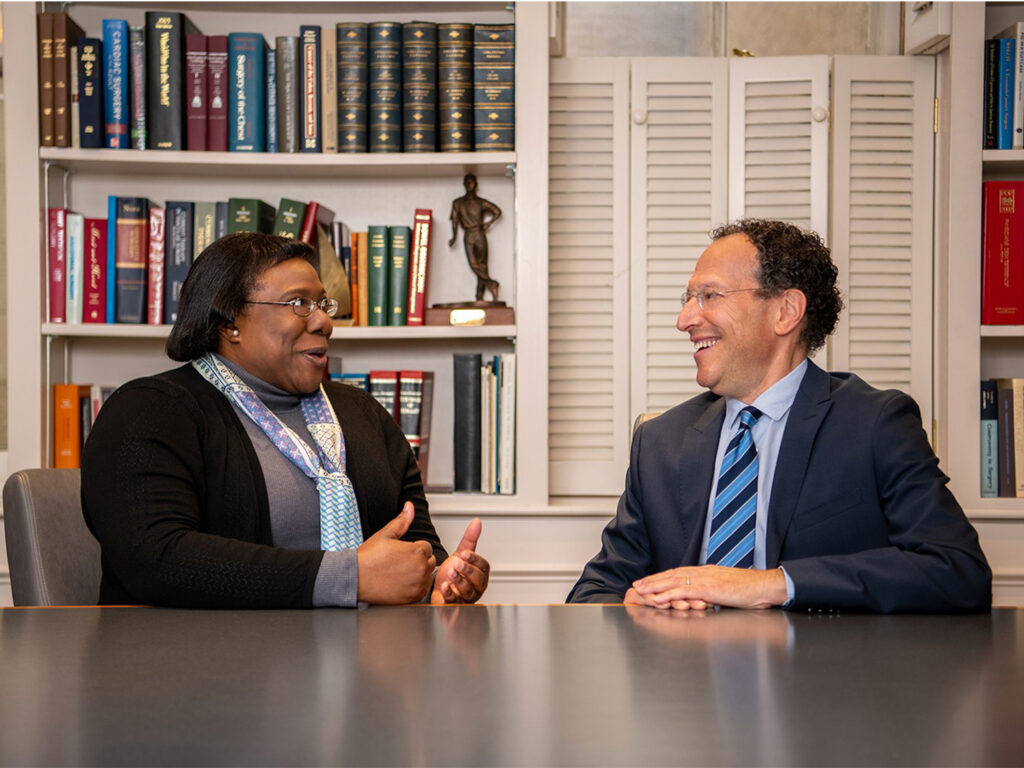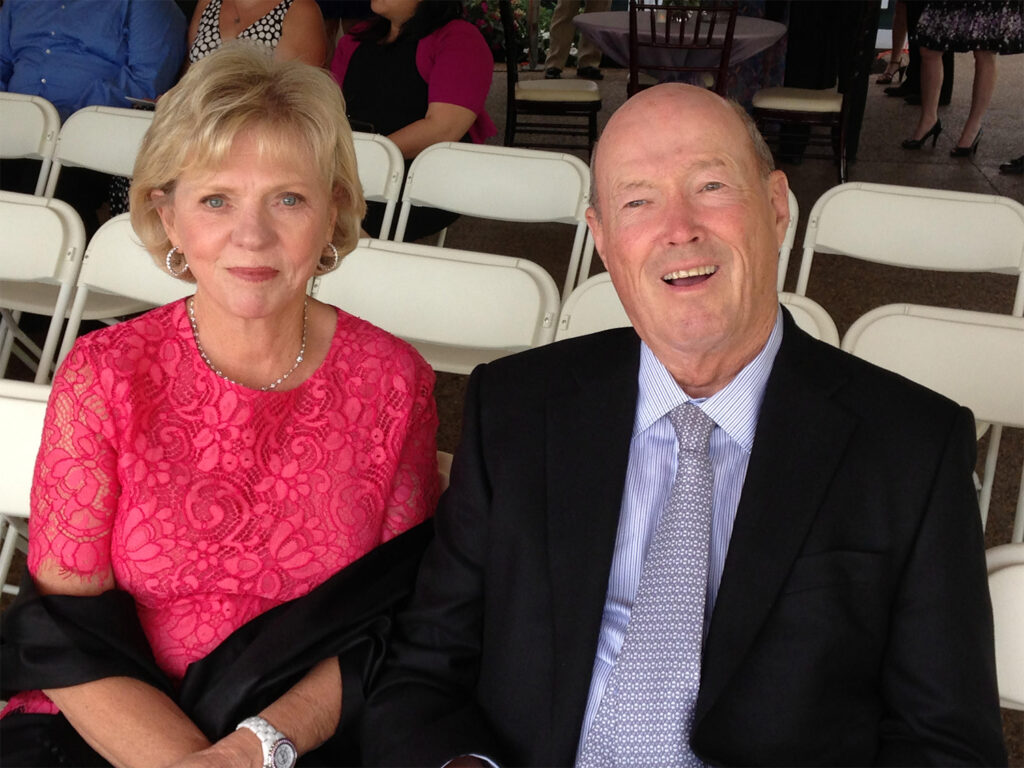Fall is a time of transitions, and 2024 presents an additional national shift: the United States presidential election, which will take place on November 5. As American voters weigh the outcomes of debates, polls and the election itself, many face renewed opportunities for heightened anxiety. The Center for Anxiety and Traumatic Stress Disorders at Massachusetts General Hospital explores the causes and treatments for a variety of anxiety-related disorders and serves as the only center of its kind for civilians in the Mass General Brigham system. Director Amanda Baker, PhD, and Associate Director Jonah Cohen, PhD, share what they see in patients and how people can manage anxious periods.
What are the biggest drivers of anxiety?
Amanda Baker: Uncertainty and lack of control. For many of our patients, our skills and therapies focus on tolerating the lack of control that we have rather than gaining more control of the situation.
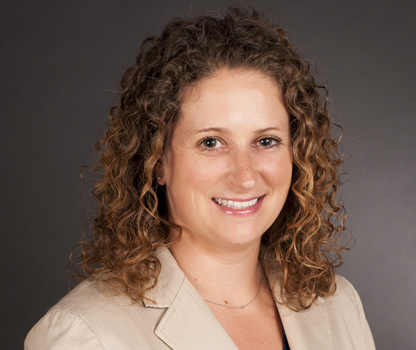
Jonah Cohen: What Amanda brought up — uncertainty — can come about or be exacerbated during times of big transitions. That can be marriage or your family growing, the death of loved one or a job change. When we navigate change, with something like the election, a new job or a new relationship, how do we make sure we’re okay with this sense of not knowing what’s coming down the pipeline? We also need to understand the limits of what we can control. There’s only so much we can do in attempting to orchestrate and direct our lives.
When is anxiety problematic?
AB: It’s going to be very individual for each person, but I base it on the level of interference in one’s life, along with overall distress. If anxiety is crossing a line of causing someone to miss things or get in the way of school, work or relationships, then they need help. In terms of levels of distress, mild anxiety is okay. Panic attacks or other physical distress are things people should look out for.
How do you treat anxiety at the Center for Anxiety and Traumatic Stress Disorders?
AB: We treat adults with any of the anxiety and trauma disorders, including post-traumatic stress disorder (PTSD) and prolonged grief disorder. We employ cognitive behavioral therapies that include challenging the helpfulness and unhelpfulness of certain thoughts and increasing value-driven behaviors, like exercise and social activities.
“We want people to be able to live the lives they want to live, not the lives anxiety tells them they should live.”
For PTSD, we treat patients through prolonged exposure therapy, where patients gradually confront trauma-related emotions, memories and situations; and cognitive processing therapy, which teaches patients to evaluate and shift difficult thoughts. We also have ongoing research that explores expanding these offerings and providing patients with more emotional regulation skills before and after treatment. We want people to be able to live the lives they want to live, not the life anxiety tells them they should live.
Ultimately, we tailor the treatment or skills based on individual experience. We do a case conceptualization for each patient and think about the functions of each anxiety-driven behavior. One behavior could be avoidance, which keeps anxiety up in the long-term — for instance, someone might not want to read any news stories, because it causes anxiety if the candidate they’re supporting isn’t doing well. On the other side, someone might compulsively over-research their candidate. Both are anxiety-driven behaviors.
JC: Many of our treatments have components that are useful in transitions. In behavioral work, we work to understand how behaviors might be making patients anxious, or maintaining their anxiety, and we encourage them to engage in alternative behaviors. In cognitive restructuring, we identify negative thoughts and work to replace them with something more realistic and/or helpful. When it comes to the election, people may think, it won’t go the way I want it to. In these types of treatments, we would say to them, “Do you know that? And what does that mean? Can you be okay in a reality where things didn’t go your way?” Our hope is that these skills generalize, and our patients can apply their principles in everyday life.
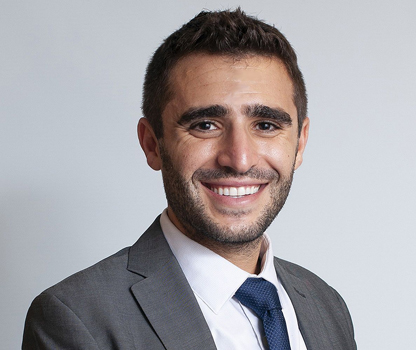
What advice would you give to someone who is feeling anxious when things are changing?
AB: Any time, but certainly around transitional moments that can cause heightened anxiety, I tell people to make sure they’re meeting foundational health needs. I think of those as sleep, nutrition, social fulfillment and exercise. From there, it’s about setting yourself up so that when you meet stronger triggers, they’re easier to manage. It’s critical to work from a solid foundation of health.
My hope is that mindfulness will become one of those basic needs as well. Mindfulness helps us to not get pulled into unhelpful thoughts and bolsters acceptance of things we cannot control.
What trends are you seeing currently at the Center?
AB: Most people know someone who has been touched by anxiety or trauma, as 33 percent of people will have anxiety at some point in their lives. Our program treats adults ages 17 and up, and we saw 250 new patients last year — double the number of new patients we saw the previous year.
While we haven’t seen a rise in any particular age bracket, we have seen an increase in the severity of symptoms.
How has philanthropy shaped your work?
AB: Thanks to the generosity of our supporters, we’ve been able to grow our team, expand training opportunities for clinicians who represent the future of treating patients, and provide more access to treatments. For instance, the fact that we’ve been able to double our clinical capacity can be traced to a timely gift from Stephanie and Matthew Magee. Their philanthropy helped us vastly improve and expand our training program, which directly correlates to the number of patients who can receive high-quality, evidence-based care. Access is a growing problem, and it would be a much larger problem without philanthropic support from the Magees and others.
JC: The Center is the only specialized anxiety and trauma center for non-military civilians within the Mass General Brigham system. There is a tremendous need for services within our community. We’re working our tails off to do cutting-edge research and provide quality care for more patients, and we appreciate any help in doing that work.
To learn more about or to support the Center for Anxiety and Traumatic Stress Disorders, contact us.
